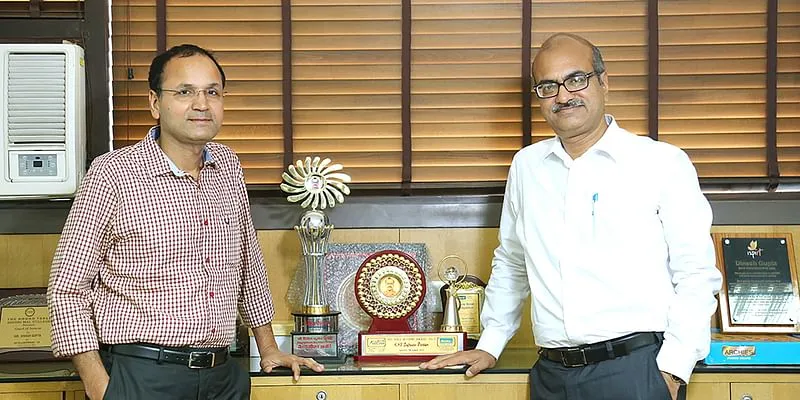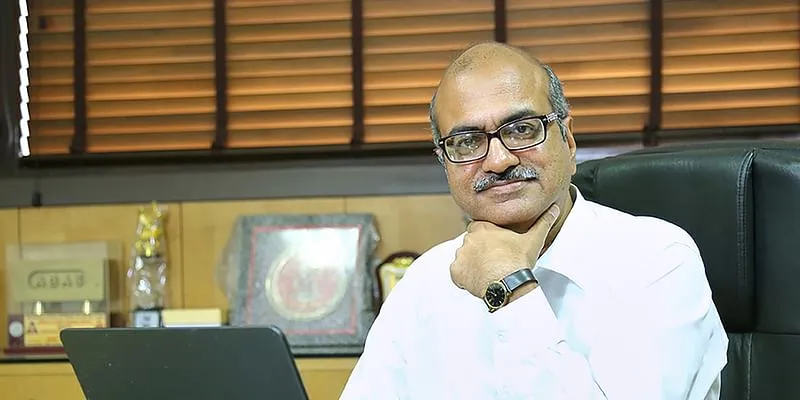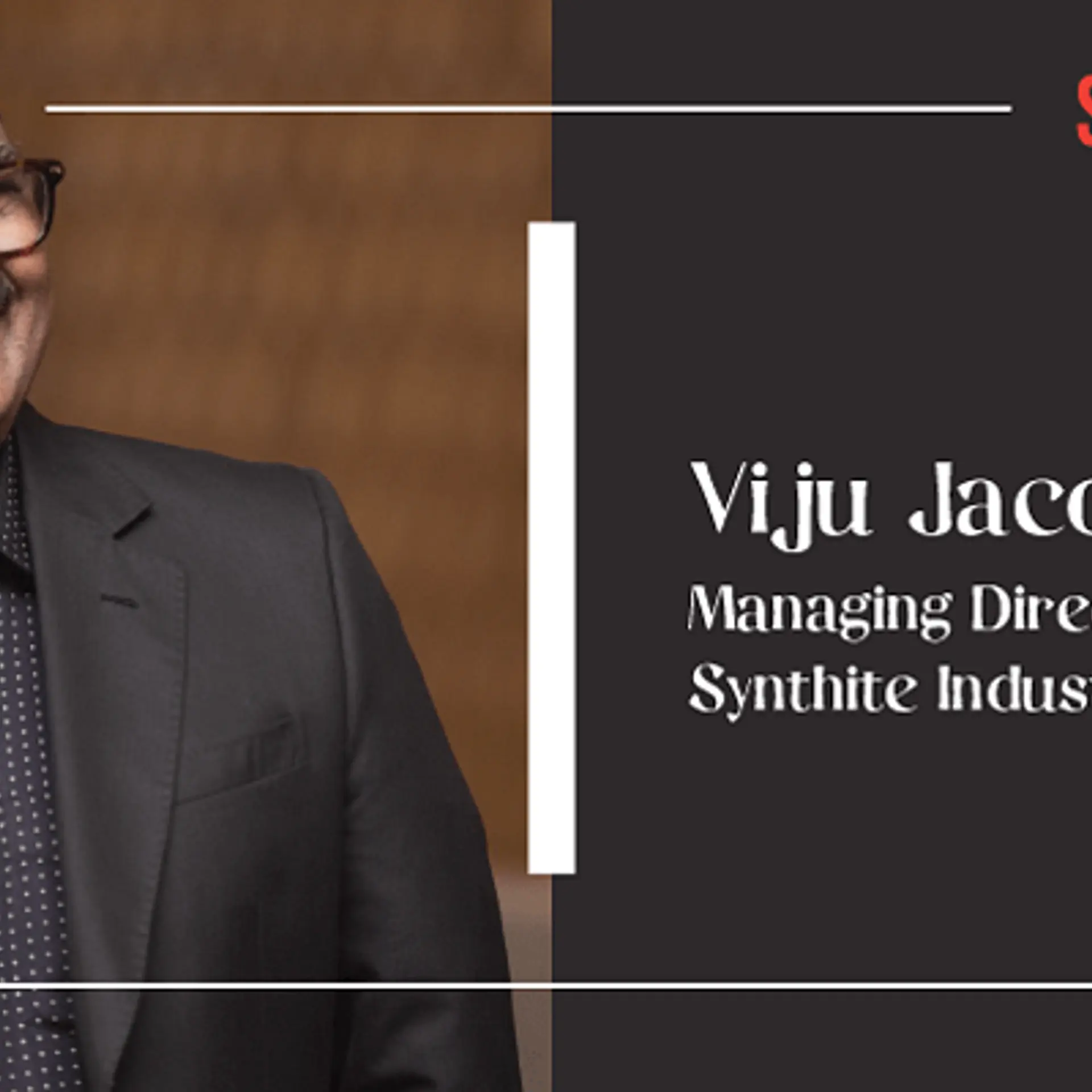This business accounting software for MSMEs, built by two brothers, has sold over 3 lakh licences
BUSY Infotech was started in Delhi in the 90s by brothers Dinesh and Rajesh Gupta. Today, the accounting software is being sold and supported through a network of over 450 channel partners.
In the 1990s, Delhi-based entrepreneur Dinesh Gupta sold computers and accounting software to enterprises. The electronics engineer also undertook projects for custom software development and provided professional IT services under his company Digitronics Infosolutions.
However, he felt his business was more suited to building his own product than being a reseller or developing custom software for others.
“I had worked with MSMEs for many years and developed a fairly good understanding of their business requirements. So, I decided to build my own accounting and business process software for MSMEs,” he says.
In 1994, Dinesh and his younger brother Rajesh launched , an accounting software for MSMEs, at IT Asia ’94 at Pragati Maidan, New Delhi. For three years, the product was developed under the software division of Dinesh’s company Digitronics.
In 1997, they started BUSY Infotech, a bootstrapped sister company, to develop and market the BUSY accounting software.

BUSY cofounders Rajesh Gupta (left) and Dinesh Gupta (right)
Product development
Through the software, the brothers reached out to MSMEs and managed their accounts, business processes, and operational controls.
They tried to make the solution useful across geographies, industry verticals, and customer segments such as FMCG, retail, manufacturing, trading, distribution, and services.
“Understanding the user’s requirement is the key to this business. Technology follows. People driven by technology try to solve the user's problems with whatever solution technology offers. I think it should be the other way round. We should start from the user’s requirements, and then the suitable technology should be used to solve the problem,” Dinesh says.
In 1996, the product was redeveloped in C++, and its windows version was introduced in 2000. Over the years, BUSY received an overwhelming response from the market and sold over three lakh licences to enterprises in over 20 countries, claims Dinesh.
“BUSY wants to take the product to a higher level where it becomes an integral part of a user’s life. The product should improve the experience of users by absorbing the pains of business management so that they can spend more time on the other aspects of the business,” he adds.
The software comes in Basic, Standard, and Enterprise Editions with Single, Dual, and Multi-User options. Rajesh, who is responsible for the overall product development, maintenance, and back-end support, believes this makes the product flexible and scalable for its users.
“Some salient features of BUSY are Auto GSTIN Validation, Auto GSTR-2A Reconciliation (Party-wise / Voucher-wise), Auto GSTR-1 / GSTR-3B Reconciliation, Auto E-way bill generation and printing, option to check pin code distance, annual GST summary, and new proposed GST returns - Sahaj and Sugam,” he says.
BUSY also supports automatic data backup with BusyAgent Utility, mobile app for data viewing and sales order/receipt feeding, send/receive business notifications along with PDF attachments in BusyBNS App, option to upload PDF files and send links through SMS, direct email/SMS to parties, self, and broker, invoice printing in second language, holding of voucher for POS counters, electronic data exchange (Invoices) among BUSY users, maintaining categories with items / accounts, specifying instrument details in payment / receipt vouchers, and provision for monthly voucher number.
“We have digitally connected with our channel partners via our in-house User Management System (UMS), where they can manage their day-to-day transactions through web as well as through mobile. For our customers, we have created feature-specific videos to help and train them in order to enrich their experience,” Rajesh says.

Dinesh Gupta, Cofounder and MD, BUSY
Challenges and way forward
Today, BUSY is being sold and supported through a network of over 450 channel partners, besides its own offices in Delhi, Mumbai, and Kolkata.
Some of its clients are World Bank, Institute of Chartered Accountants of India (ICAI), Le-Meridien Hotel, Asian Paints, Wembley Laboratories, Plaza Cables, Flair Pens, All India Management Association (AIMA), and Rotomac Greetings and Gifts, among others.
Despite these high-profile names, piracy is a significant challenge the brothers are facing. BUSY has more users with pirated versions of the accounting software than licensed users. Perhaps one reason for its wide popularity is the availability of business management features along with accounting features.
The demand for accounting software in India is certainly picking up. Some of the other top accounting softwares in India include Tally, QuickBooks, and Marg.
BUSY and the other top accounting solutions offer additional features beyond basic functionality to equip users with more power, flexibility, and customisation. For instance, most ERP solutions come with extensive accounting modules.
With this advantage, BUSY and other top players in the Indian accounting software space are looking to capitalise on a market expected to grow at a CAGR of over 14 percent during 2016-21. Dinesh and Rajesh say BUSY has been growing organically at the rate of 10 percent to 20 percent per annum.
“The accounting software market is worth around Rs 1,000 crore per annum. However, growing faster than our rate requires a different kind of approach which we fear can impact the quality of our product and services,” Dinesh explains.
Going forward, the brothers aim to penetrate into Tier II and Tier III markets by tapping into a bigger network of channel partners and resellers. They plan to evolve their mobile application and come out with cloud solutions. They are also planning to expand their market to African countries such as Nigeria, Ghana, Kenya, Rwanda and Botswana.









1553161965957.png?mode=crop&crop=faces&ar=1%3A1&format=auto&w=1920&q=75)